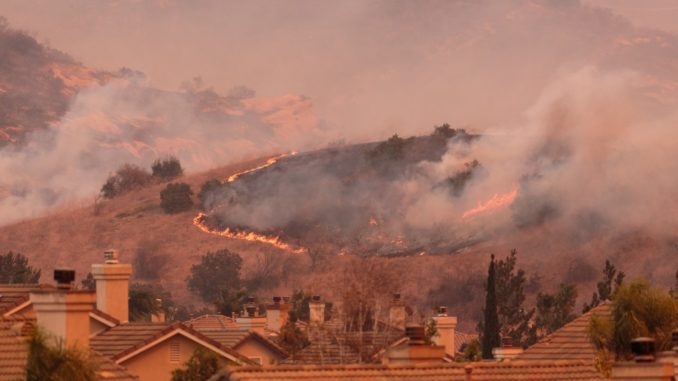
Smoke from California wildfires are reaching Utah, and if inversion had its way, it’ would be trapped there for quite a while. Utah’s air condition and particulate problems have escalated to dangerous levels, and no matter how effective state policies are in addressing it, outside factors can always mess things up.
Not Utah’s Fault
Salt Lake City shouldn’t be having particulate problems this time of the year, but California wildfires are pumping smoke into Utah. There have been nine wildfires in California this September. Winds carry smoke and particulates from the fires into Utah, trapping them inside because of inversion. Exposure to particulates can irritate the eyes, throat, nose, and lungs. It can also aggravate medical conditions like asthma and heart disease. Particulates you breathe in can irritate your lungs by blocking its air sacs, which can lead to asthma and breathing problems. Particulates in your lungs can also get absorbed and enter your bloodstream, hindering the flow of blood and potentially causing strokes and heart attacks. Utah’s elevation exacerbates the problem as you tend to breathe faster to compensate for the thinner air. Children and seniors are especially vulnerable to the effects of particulates. Children’s lungs aren’t fully developed, and seniors have more fragile constitutions.
State Measures Addressing State Problems
Utah is already spending millions to combat air pollution and address the particulate problem plaguing the state. Close to $30 million have been allocated to fund various programs and initiatives that deal with air quality. Salt Lake City’s numerous programs and policies with regards to renewable energy, water systems, transportation, building policies, and code revisions were recognized by the White House of President Obama, garnering the state a Climate Action Champion Community Award. One of Utah’s more recent measure to address air pollution is its buyback program for wooden stoves. Local government is offering rebates of up to $3,800 to encourage residents to switch to propane furnaces, fireplaces, and stoves or to at least switch to modern wood-burning versions designed to minimize particulates and pollution.
Particulates in Your Home

Staying indoors can protect you from particulates and pollution outside your home, but you might be producing particulates right inside your house. Anything with visible smoke has accompanying particulates. Fireplaces, wooden stoves, even smoking a cigarette produces particulates. Switch to propane or gas; it burns more efficiently and produces close to zero particulates. If you want to hold on to your wood stove, make sure it is properly vented or install exhaust fans that would vent the smoke outside. Get regular maintenance for your heating and cooling systems. A well-maintained HVAC system can reduce fuel consumption and improve the air quality in your house by getting rid of accumulated dust, pollen, mold, fine ash, and other particulates that would otherwise just get circulated inside your home.
Utah’s unique topography makes it vulnerable to air pollutants — even those from other states. While the state government and residents are united in their efforts to combat air pollution and particulate problems, unforeseen circumstances can sometimes throw a wrench and disrupt even the best of plans.
